|
Third and Union really does it for me, for some reason. It feels like a vortex of the city just as much as the more infamous Pine and Pike blocks, but without as much kerfuffle. I'd wait there by the post office as a youngster, marveling at all the buses going by, all the potential destinations, life choices driving by like so many open doors.
Each of my last five New Year's' could hardly be more different, and each has been spectacular. Intimate spaces shared with special people, lit by a flickering candle; pillow fights with my friend's kids; standing beneath the Space Needle in colored fog. On a plane to Milano, smiling to myself while everyone else was asleep. I spent the first moments of 2016 wandering about the Third and Union bus stop, just outside the symphony hall. I was driving the 7 which left there at midnight, which arrives five minutes beforehand and waits for transferring passengers. For me it's an opportunity to step out, stretch, nod at people, exchange a smile. I'm not famous; I'm just popular. Forced to choose, I take the latter. Fame is when people know you through indirect means like magazine articles and TV shows. Everyone who knows me, conversely, has had primary contact. They've read my words, not those of others, on this site. They've spoken to me on the street, on a set, on a gallery floor, or they know me because they know someone who has. It's overwhelmingly primary or secondary contact. When you're popular, your character shapes others' perspectives of you. When you're famous, you don't have that luxury of control. I'm hugely thankful to be in this sweet spot. Walking down Third Avenue, the folks who invariably recognize me do so not because they read a takedown in The Times, but because they remember how I treated them six months ago, or because their friend told them to read this website. There's an intimacy to this path, a realm built on real interactions, and I am impossibly grateful (to you!) to be the recipient of such thanks. There's always someone around I recognize, and I nod at the good people of midnight Union. It's a minute or two away now, 11:58, and we strangers are coming alive to each other, brought together by the common element we're all excited about: two more minutes, less than that. A man dressed in ragged layers dawdles about on drunken sea legs. Here's a woman stepping out of Benaroya, stylish in chic canary velvet, equally inebriated; they're animated by the same things, aligned for this glorious moment on a nighttime street corner. The Latino dishwashers and servers are there, as they always are, coming toward my bus after last year's last shift and the new year's first ride home. We grin wide, they and I, as per usual. An older African-American woman, hair and makeup to the nines, outfitted in rich blues and greens, lighting cigarettes for herself and three friendly strangers, twenty-something Caucasian college girls, the four of them contagious in their avid, united ebullience. This is our time. We believe in the future, they as much said, as they cheered and yowled up at the starry heavens. Fireworks, booming out in the distance, a glimmer visible in between skyscrapers. I stretched my arms and watched them, my heart rising. I answered people's questions, looked around for who to smile at next. It was time to go. "Happy New Year, everybody," I told my weary crowd of passengers, "and good morning! I've got a good feeling about it! Time to go home, or time to go out…." I drove with my window open through the rest of downtown. I saw my friend Kyle on the street corner, an operator. We howled wordlessly at each other, mock surprise and real joy. I toasted with my water bottle toward a couple on Second Avenue Extension. They were in heels and dinner jackets, sipping champagne, and I was driving a ridiculously ramshackle hunk of metal nearly as old as I was, but it just made sense. It's all the same at the end of the day. Victor roared past on the C Line, waving big. In life he's a bus driver and a translator, but right now he was you and me. We all were. Litter blew circles in the gentle breeze, gold and pink and green and every glittering hue in between. Confetti. This is our time. Happy New Year.
2 Comments
Would he mind if I said he looked like an older James Taylor? I don't think so. I think it's a fine look. The disarming bald pate, the amiable smile. Yes, not bad at all. He stretched his arms out wide at the bus stop and belted out the lyric:
"Oh, Nathan Jones, you've been gone too long, gone too long!" I didn't know what he was talking about. In bus driver mode, you're multitasking even if it seems like you aren't. Adding more thought processes on top of that is exciting but difficult. It took me a few more seconds to understand he was quoting the Supremes song. For now I corrected him: "it's Nathan Vass!" "I'm singin' the song, man!" "Oh, I get it. Yeah, sing it again!" Now I'm realizing I actually know this guy. Way to be behind the times! I put it together as I go along, blurting out, "good to see ya!" "Where you been?" "I been right here! How's that 70?" "Oh, it's there. It does what it needs to," he replies, finding a seat near the front. Watching me execute the wide left onto northbound Broadway, he asks, "you like this 49 more than the 70?" "You know, I do. I like the crowd." "Mellow?" "Well, there's more energy here. Which I like." That's something I do. You've noticed it before. I hate correcting people. I feel like it's almost never necessary. I do the above instead, steering them toward what I'm thinking. When someone says something that's obviously wrong, like the sky is red, you don't have to shut them down. I think it's blue. Sometimes it looks red. In conversation, you rarely need to explicitly say no. It's unproductive. James Taylor understands my response and agrees, saying, "okay. Not those commuters." "Those silent Amazon people!" I've ragged on the poor Amazon workforce and the "silent 70" ridership way too much on this blog. They're a lovely bunch, I'm sure, though I'd hardly know it from driving them around. They're nicer than Microsoft employees, in that they will eventually make eye contact or say thanks if you preempt them, but they appear just as overworked– if not moreso.* The corporate giant has figured out how to make cutting edge white-collar work miserable, and it isn't so much that these young millenials actively choose to avoid integrating into any Seattle communities; I imagine they don't simply because they lack the time. James Taylor reflects on the 49 ridership and exclaims, "hipsters, out here!" Again, I gently correct him with, "little bit of everyone!" "I don't think I can be a hipster," Taylor muses. "I'm, I'm, I'm I think I'm too old to be a hipster." Someone else pipes in: "not ironic enough!" "I think I need to be more jaded!" That's the nail on the head. I say, "exactly, not enough irony!" "I'm just a straight up kinda guy. You don't seem like a hipster." That's the best compliment I've had all day! "Thank you! I hope not to be. I don't think I can be. I'm too, um. I'm too friendly!" "You're genuine," Taylor remarks. That's the best compliment I've received in… ten seconds! "Thank you!" "You're genuine. That's a big check mark in my checkbook." "Mine too. That's all there is at the end of the day." If irony and cynicism help certain people feel more comfortable, that's fine. If selfhood through focused work does the same for others, that's fine too. I like certain things hipsters like (albeit for different reasons), and when I'm overworked I'm withdrawn too. Everyone is at all times going through something, and we each have our methods for dealing with it. But let us remember the last and final currency, after all has sung and gone, is truth. Authenticity of self, of action, of communication; that, and little else, has the power to cut through the noise. Be bold, as you go forth. Bold enough to be genuine. --- *A class divide is happening here that doesn't need to happen. A workforce 24,000 strong which skews overwhelmingly male (and white), with a positive income disparity so far above much of Seattle's income it's responsible for raising neighborhood rents twelve percent in a single year… doesn't have to be a bad thing. Amazon, as a corporate entity, can choose to participate in solving the problems it creates. It has the capital to address issues (crucially, housing) such that it might begin to build goodwill in its own home city. The dividends of being loved where you live go far beyond the quantifiable, and if higher-ups at Amazon read this with any surprise or lack of concern, they might benefit from learning to take the temperature. As far as person-to-person interactions, millenials are a generation which care notably about others and society's interests at large. If Amazon allowed them the time to do so, I wouldn't have to listen to my female friends tell me about the disastrous brogrammer dates, amazing lack of social graces, numbingly unengaging interaction, and overall disinterest in other communities. Harsh, yes, and anecdotal, but true. I know some terrific Amazon staff. I'd love for all of us to know some more. Amazon's workplace environment: Amazon employee injured after leaping from 12-story building at the Seattle headquarters (Business Insider) Inside Amazon: Wrestling Big Ideas in a Bruising Workplace (New York Times) Depiction of Amazon Stirs a Debate About Work Culture (New York Times) The Life and Death of an Amazon Warehouse Temp (Huffington Post) Amazon's effects on Seattle: Amazon’s Harmful Impacts on Seattle and Beyond (FtJ). Great starting point with a lot of links. Has Amazon killed Seattle? One writer thinks so (Seattle Post-Intelligencer). "Reader's Digest version" of the two articles below. Going beyond the hyperbole– some great context & research here: How Our Success is Ruining Seattle (Jeff Reifman) How Amazon Swallowed Seattle (Gawker) Have you ever noticed how hard it is to remember how a dream began? You're always already in the middle of a situation. That's how this circumstance felt. A moment ago I was standing in the plaza at Fifth and Jackson, waiting for my bus to arrive and my shift to commence. I'd exchanged a hello with Ali, one of the regulars you can always find lounging about the area. Things were placid. How did we get from that to this? I'd barely been here five minutes. Where did this strange angry boy come from? Why was he being so loud? For that matter, the man he was yelling at– where did he come from?
A late-adolescent youngster in a beanie, hoodie, dreadlocks, baggy sagging jeans, and clean oversized sweatshirt was roaring at an older man, attempting to rob the fellow. "You got me some money? You got some money for me, nigger?" He was a loose cannon. The forty-something white man on the recieving end of these comments gave off the vibe of being no less streetsmart than his current sparring partner, and he acted more annoyed than frightened. He took a step or two away as he spoke, in a tone suggesting the idea was preposterous: "No, I don't got money, man!" "Nigger I don't give a fuck nigger, do you have some money, nigger? You know what money is?" "Yeah, I know what money is." "[Unintelligible] some for me then, nigger! If you got some money, nigger, I want some mothafuckin' money, nigger!" Ali and I were a few feet away from them. I was standing, as were the robber and robbee, and Ali was seated on the landscaping. I hoped our mere proximity was accomplishing something in terms of deescalating possible violence. I was mostly wondering how best to balance intervention with deescalation, but I also found myself reflecting on the young thief. To what degree did he realize how snugly he fit into the easiest, worst, ugliest stereotypes about young black men and how they behave? His actions, manner and dress seemed nothing if not entirely borrowed, a shameless pastiche lifted from some overused manual of clichés, which probably felt as empowering as they were self-destructive. A line echoed in my mind, a memory of an older black man speaking to a black youngster in a situation different but similar to this one: "man, you an embarrassment to your people." "I'm friends with him, dude," the white man said from his scruffy leather jacket, gesturing toward Ali. "I don't give a fuck if you friends with him!" Not true, and I could see it. The boy was being forced to reevaluate the situation: this white guy is friends with this black guy whom I don't know, and I also just became outnumbered. But I can't show that. "I want some mothafuckin' money, nigger! You know what money is, nigger?" "Yeah, I know what money is. I was tryna talk to this guy." It was turning into an argument instead of a mugging. Great. My bus had just arrived, and I went over to greet the driver. Ali yelled farewell to me, and I set myself up in the seat, closing the front doors and pulling a few feet forward, to the red light. Again as in a dream, the young loose cannon was now just outside my bus, knocking on the glass of the front doors. His attitude on the sidewalk didn't exactly give a good first impression, and I considered leaving the doors closed. But. The light's red. He could stand in front of the bus to block it. Maybe he's armed. I had a thought: my customer service skills are stronger than this glass. This is what we do. I opened the doors and positively radiated welcoming energy toward him. Make it genuine, and beam it out. My safety and that of my passengers depended on it. I leaned forward and tilted my head with an upward nod and a smile. "Hey, how's it goin'?" "Do me a favor, man," he said, amiably. "Yeah yeah for sure, what's up?" "My shit is worn out. C'ai get transfer? C'ai get two transfers?" "There you go, I'm gonna give you two, how's that sound?" "Sound beautiful." "Right on." "Sound like I'm [unintelligible]." I could tell by his tone he meant some sort of thanks. "'Ppreciate choo!" "Texas. Office!" I had no idea what those words referred to, but the timbre of his voice and body language explained it all: gestures of respect and appreciation, mutual acknowledgment. I replied accordingly. "Alright, take care now! Good holiday!" "You have a good holidays too!" he exclaimed with a grin, stepping off the bus. I closed the doors and took the green light, moving forward and reflecting further. There is goodness in every last person on this planet. How I love watching it come alive! Los Angeles. It's another world, that strange anomaly among American cities, and it doesn't apologize for itself.
In some ways it represents the future; 2014 was the first year in which a larger percentage (50.2) of American children under five were of ethnic descent. That's exciting for the United States, but for L.A. it's old hat. The largest major American metropolis where English isn't the dominant language, the city's percentage of ethnically descended young children is a staggering eighty-three percent. In that regard, L.A. is what the country will look like in fifty years. In other respects, it's grotesquely antiquated. Look at the grimace on any urban planner's face when you mention Los Angeles. By far the country's worst example of urban sprawl, a staggering thirty percent of the city's land mass is given over to automobile use.* One and two-story buildings stretch out as far as the eye can see, and nobody but nobody can get around the sea of brake lights. Alfa Romeos and Pintos sit through the stuff together. Unless you live along one of the rail lines, the place is endless, in terms of both space and time. The marine layer in the mornings and the smog in the afternoons exacerbates the distance visually, the vapor giving size and heft to the vastness. The City of Angels isn't really about the past or future, though, or even the present. You've heard the saying, and it's true: it's where people go when they have an idea and yes, a dream. Dreams are what the city is founded on, and the common element in the beating heart of every Angelino. You go there because you believe. It might be possible. It could happen– stardom, wealth, status, recognition, or– more modestly but no less massively– steady income, naturalization, certification, family, treatment, opportunity. Love. Self-realization on some level. Every good thing in life is predicated on a maybe, and the ones naïve and brave enough to try– some of them– will be the ones who actually make it. I wish sometimes I were as strong as they. I'm alive because my Korean grandfather had the will and resolve to start a new life there under enormous hardship, with every guarantee of failure and nothing to his name but a set of mouths to feed. My friends move there, or move out of there (you move out of LA, not away from it), as I have done more than once, as they wrestle with how they see themselves. I love the city desperately, that old human tornado, but I can no longer bring myself to live there. LA also contains everything that comes with dreams: fear, loss, hope, disillusionment, tragedy, frustration, anger, anxiety, confusion, and crushing disappointment. As much as there are dreams in that vast array of lights, so too is there reality. There's a woman I knew there whom I love immensely, a degree of sentiment I cannot overstate, but with whom I can't share a life. Things make sense in my dreams, but dreams aren't where I live– and reader, understand that this is coming from someone who believes in magic, who goes around trumpeting the idea that realists are forever doomed to mediocrity because they lack the vision to see greatness! But I can't deny reality, and the fact that I am all I can offer. You know this feeling, I'm sure. The best I can ask for is what I have already received: the gift that she'll always be part of my character. I don't believe you'll ever read this, my dear, but if you do, bonne chance. You deserve every good thing in life. Our dreams contain giants, versions of ourselves we know to be possible. I would ask all of you a favor, if I could, and that is to keep chasing those other dreams, even when the one in front of you is ended. When one dream gets broken, don't abandon the others too. There's a difference between giving up on a dream and giving up on the idea of dreaming. The former is a necessity we'll all do at least once; the latter is how people grow old, wooden, tired, bitter. Don't go there. You don't have to go there. Pick up the pieces. The other dreams are different, and in them the notion of bettering ourselves, realizing ourselves, lives on, and on, and on. Another favor, not as crucial but recommended no less enthusiastically: go see La La Land! Watch this trailer, please, and then go see it. It's the film of the year by far, both aesthetically and in terms of content. It's about everything you just read, and it's not a mere celebration of following your dreams, but more fundamentally a commemoration of the very act of dreaming itself. We do these things because we believe, and that alone is worth is extolling, regardless of the outcome. --- La La Land: The teaser above was not in as heavy of rotation, but I love it. Here's the first teaser, and the domestic full trailer. Note the rich colors: shot on 35mm film! Damien Chazelle on La La Land: 'Los Angeles is full of people chasing dreams' (The Guardian) La La Land writer-director Damien Chazelle on subverting the things he loves most (The Verge) Emma Stone and Damien Chazelle on the Magic and Alchemy of ‘La La Land’ (Variety) L.A. land use: *14 Percent of Los Angeles County Land is Dedicated to Parking (Curbed). Key quote, from Donald Shoup: "You can't have the number of cars we have in L.A. without our parking lots, and you can never create urban density with the parking lots we've built." -The link above is just about parking. If you want the really exhausting stuff, try this 2012 report: Transportation Land Valuation: Evaluating Policies and Practices that Affect the Amount of Land Devoted to Transportation Facilities (Victoria Transport Policy Institute). L.A. language and demographics: -New Census figures show nation is following Los Angeles in diversity (Press Telegram) -New data shows more than HALF of Los Angeles residents speak a language other than English at home (Daily Mail) -Demographics of Los Angeles (Wikipedia) "Hey, he's smoking crack! You need to get off!"
That's the African man seated across from them, noticing something amiss. Crack cocaine has no odor, but this fellow is primed to pay attention; he's a nighttime security guard on his way to start a shift, already slipping into observant work mode. I hadn't seen a thing, and was grateful for his pro-active stance. None of that Seattle Freeze disengagement here. I took his side on the matter, speaking loudly to the father-son pair who were about to do the deed. It was mainly the middle-aged father who was in need, beads of sweat on his bald pate, with unsteady hands holding the materials. The son– I really hope that wasn't his son, just a younger accomplice– was more put together, having the advantage of a newer body on his side: less years of abuse. Tone of voice is everything. In certain circumstances, like this one, it's the only tool through which you communicate respect. That key difference can completely change which universe you step into next. I spoke loudly and firmly, but kindly. The voice of a friendly babysitter, but with more bass: "Okay no smoking on the bus you guys, that's bad manners. We're not gonna call the cops, that takes too long. Thank you guys, 'ppreciate it." Incredibly, they were sitting right up front. The sweat-dripping father seemed relieved and grateful, returning my sentiments with thanks of his own, as willing to show me respect as I did him. The idea of not calling police seemed particularly appealing, not just for him, but for everyone else too. He thanked me several more times. The son helped him off the bus later on, taking a moment to thank me as well. Ibrahim, another man who looks middle-aged but is probably younger, is known by many drivers for his tendency to smoke illegal substances on buses. He has the damaged and blistered lips one gets from overexposure to the high temperature of crack pipes, and frequently falls into coma-like napping episodes from being zonked out on "spice," a relatively new street concoction (it looks like pot. It isn't. More here). Ibrahim almost never abuses himself on my bus, though. I take that as a sign of respect, and I am grateful for it, for partly my sake but more importantly that of his body. He got on once, more excited than usual. We bumped fists as he exclaimed, "hey. I'm leaving soon! In December!" "What? where you goin'?" "I got permit for translation my language. In Yakima. You know?" "Yes, Yakima!" "They won't give me here, only in Yakima." "Congratulations!" "It was three people in line," "But now it's you, it's almost you!" "Yeah! 'Cause I don't speak English very well, but they can help me." "It's good, it's great!" "Yeah!" "It's good to know you!" "Yeah! I go sit!" "Okay!" Somebody needs to be nice to this guy. Where else will he find role models? What great possibilities lie within him, thoughtful and considerate as he has it in him to be? What roads is he passing by, and which still lie in his grasp? Surprise me, Ibrahim. I think you have weathered tougher things than I, and it may one day be me asking you for help. "Heeegghhh," he said.
"Aw yeah," I said. Just pretend you completely understand the guy, is what I told myself. Most of communication is body language anyway. When we got to the next stop, he did the same thing all over again. To clarify the situation, I asked, "you want this one right here?" "Uuuugghhhmm," he said in return. He pondered Third and Columbia as one ponders the River Nile, a place of mystery and intrigue possibly too beguiling to enter timidly. One headphone hung out one of his ears, and the other swung from a spare ear lobe. His head similarly lolled on and around the region of his upper neck. He wobbled about like a human slinky, and my old modern dance friends would've loved studying his movements, considering his center of gravity, a center which came from a plane invisible to all others. His mini-garbage bag chinked and crinkled with what sounded like a half-dozen beer bottles. A young man, bony and dark-olive skinned, enveloped by a loose black and olive jacket, him woozy and stretchy in the way where you're starting to wonder how long it's been since he's made direct eye contact with anyone, when was the last coherent sentence.... This green light at the River Nile wouldn't last forever. "You wanna step out here? Or maybe you wanna go up the street with me?" "Huuggh. Yugh." "Yeah yeah, let's go up the street," I replied amiably, closing the doors. When we arrived at Seneca he paused climactically on the edge of the doorway. People behind him, waiting to exit as well, were watching. Others outside waiting to board likewise had their eye on him. He squatted. He tensed his knees. Then he went for it, leaping as strenuously as though he'd read my mind regarding the Nile River analogy, diving down a full... ten inches, landing from great heights, spreading his arms out wide with high drama, for balance. Then he walked away. As soon as he was out of earshot, the young black American man standing next to me, the mid-aged Asian woman in the chat seat, and the crisply dressed Caucasian thirty-somethings boarding all stood looking at each other for a second. We were united in each offering our own complimentary versions of questioning hand gestures, hilarious frowns, and raised eyebrows. What just happened? Who was that? More importantly, what was that? By now we were all chuckling. The young man said, "everyone's got they own problems." "So true!" I exclaimed. "Some are just more entertaining than others!" "I'm just trying to work up to that level of entertainment!" "Ha!" "We all have our own issues. I know I got mine." "Me too," he said. Don't we all. Maybe pretending to jump from a great height when exiting a city bus isn't the worst way to navigate through this crazy world. "Redden, or Renton, or something. Northern."
I know what these guys are talking about. I practically yelped out the answer: "Redding, California!" "That's it!" "The halfway point between here and LA," I explained. "It's where I sleep when I'm driving down." "Cool," said the younger fellow. "I did LA to Everett once in seventeen hours." What an odd couple they made. Friends, as far as I could tell, one quieter and Slavic-looking, with a blonde beard that could put him anywhere between twenty and forty; the other a young college student with a dark mop and plastic-frame glasses. "Seventeen hours," I exclaimed. "That's amazing!" "Yeah, well, that was like with no stopping. Didn't get out of the car at all except gas and coffee." "Wow. The fastest I've done is twenty, and I thought that was pushing it!" "Do you go there, or are you from there?" "From there yeah," "Me too! What part?" Angelinos always have to ask that. It's what we do. "Downey!" "What?!" First of all, that he had even heard of the neighborhood; but that he was from there too?? "And you?" "Oh my goodness, Firestone Boulevard!" "No way!" We blew up in a cascade of benevolent fireworks, animatedly exchanging notes on freeways and roads and buffets and schools. Effervescent vitality was in the air, and it made sense to blurt with nigh-nonsensical enthusiasm to his companion: "And how about you, my friend? Where are you visiting from?" The Slavic beard looked up in mild confusion. "Me?" "Yes!" "Russia!" "Excellent! Okay, I have a question. Why is there so much great literature that comes from Russia? How do they do it?" His friend chimed in. "Maybe 'cause it's so cold? All that crappy weather?" The man had a delightful mixture of seriousness and conviviality. Personally, I think the seriousness was really just his beard. "Yeah, you know," he expounded further, "the weather in Russia is so cold that you really only have two options: get drunk, or write great literature!" Guffaws all around. "Yeah, Anna Karenina is one of my favorite books of all time." "Really?" "Yeah, so much of human life is contained in those pages. And it's so relevant to us too, even though it's written a hundred fifty years ago, you know?" A young lady seated opposite chimed in, saying to me, "you should read Karamazov Brothers next!" "Yes, I want to! Dostoyevsky!" The Slavic Beard marveled. "You guys have read more of them than me!" The young lady had a spirited glow. She said to me, "what have you been reading lately?" I mention Richard Wright and Henry Fielding. The others join in, and I steer the conversation away from myself. It's always more interesting to listen. "What about you, what are you guys reading?" I especially want to hear the Russian man's thoughts. He says, "I really like, how do you call it, Nineteen–" "1984! George Orwell!" "Yes! That's funny, we've been reading each other's books!" "Yeah, we're always reaching for what's far away," "The foreign stuff is always more interesting." "Tolstoy is my favorite," I say wistfully. I grew up on the guy. "Everything I've read by him is so good." The young lady: "I always worry if I'm losing something in the translation though. I started reading Anna Karenina in Russian and I noticed there was so much I wasn't getting in the English…" It was her pronunciation of Karenina. The Russian man knew, then, that she was a native Russian speaker too, and they were off to the races. They were building together in their conversation, rising higher and higher, two hawks soaring on thermals, a symphony orchestra reaching upward, picking up speed; two people living on opposite ends of the earth finding the familiar. "All encounters are a kind of reunion," reads a line in Buddhist scripture, and together they made the old new again. This strange bus in its strange city was no longer so odd for our Russian friend. I had just found a former neighbor, we'd all just discovered we've been reading each other's books, and he'd just found a friend, his own accent on the other side of the world. What serendipity, what meaning behind these beautiful happenstance intersections? One day we will know the answers. There was nothing for the college student and I to do but sit back and marvel. We had built it in concert, the four of us, turned a nighttime city bus ride into something safe, kind, familiar. Our own sort of fireplace. |
Nathan
Archives
July 2024
Categories |
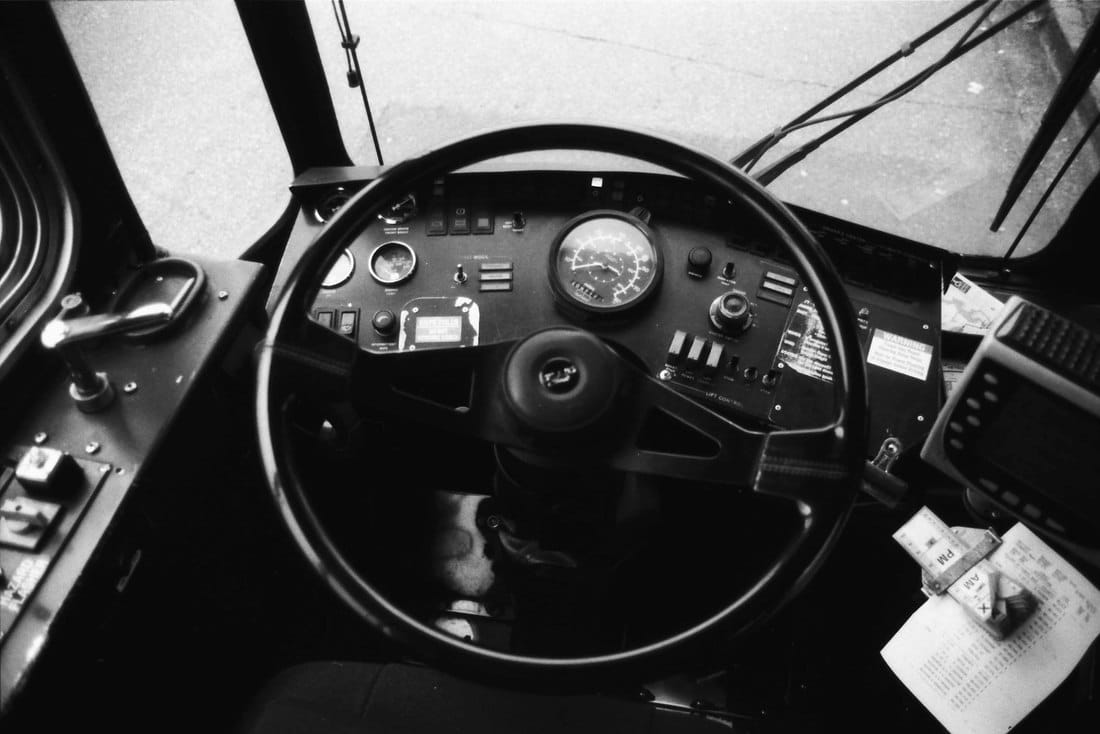

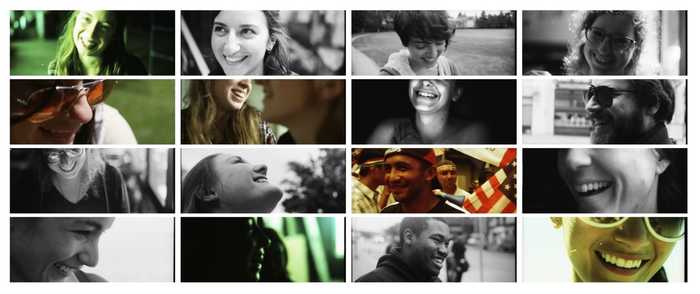
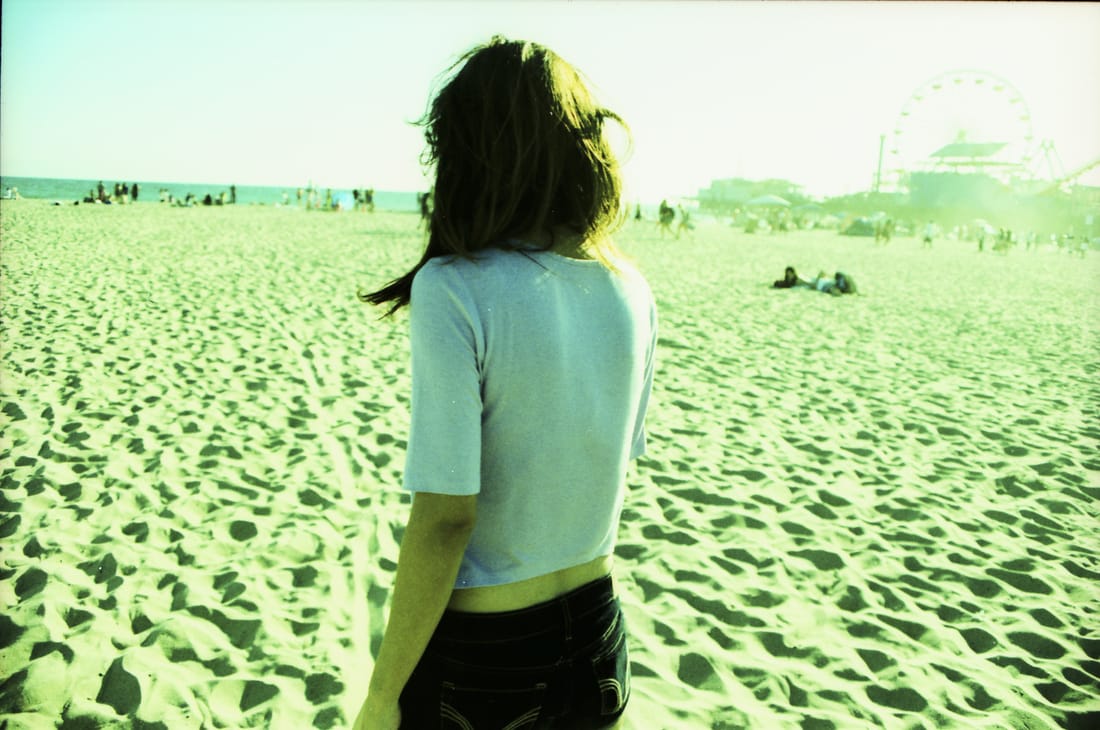
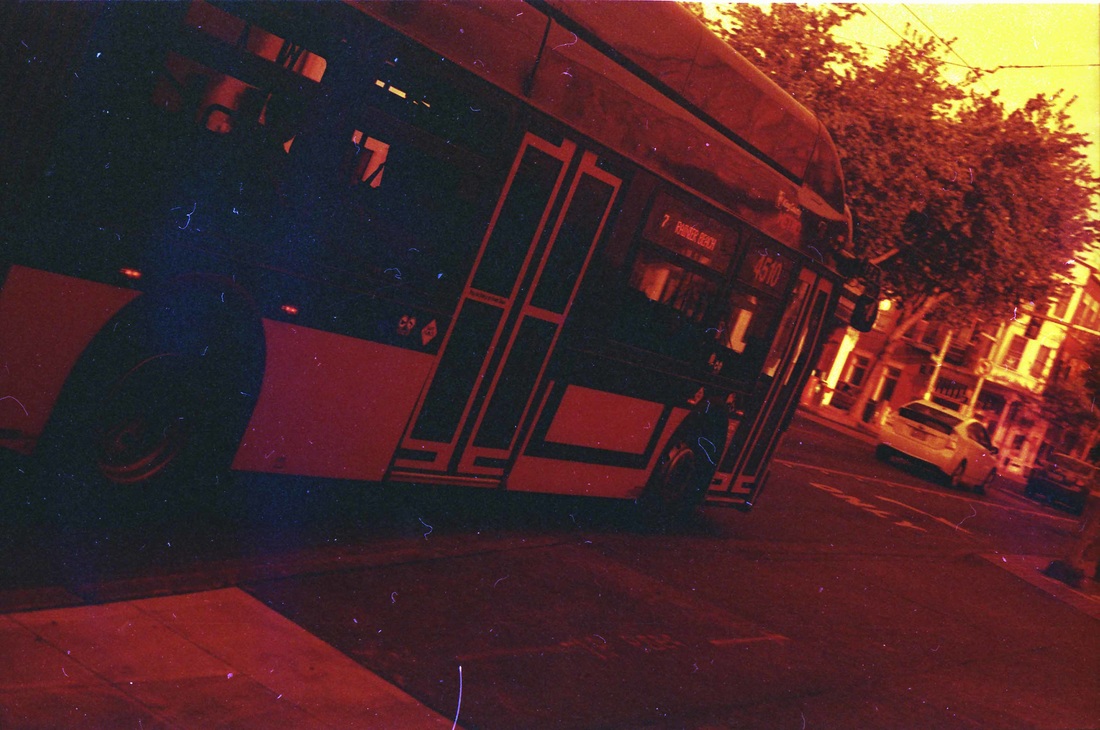
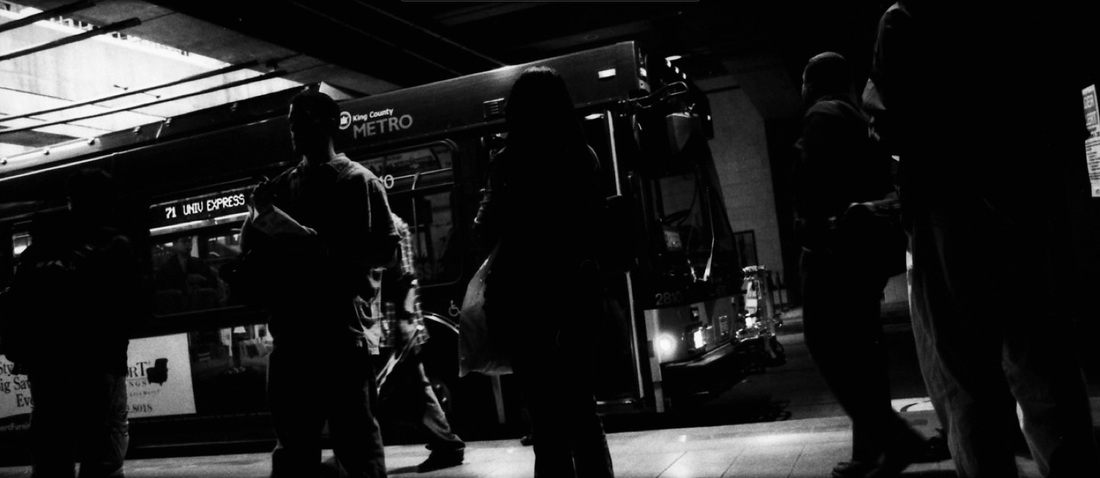
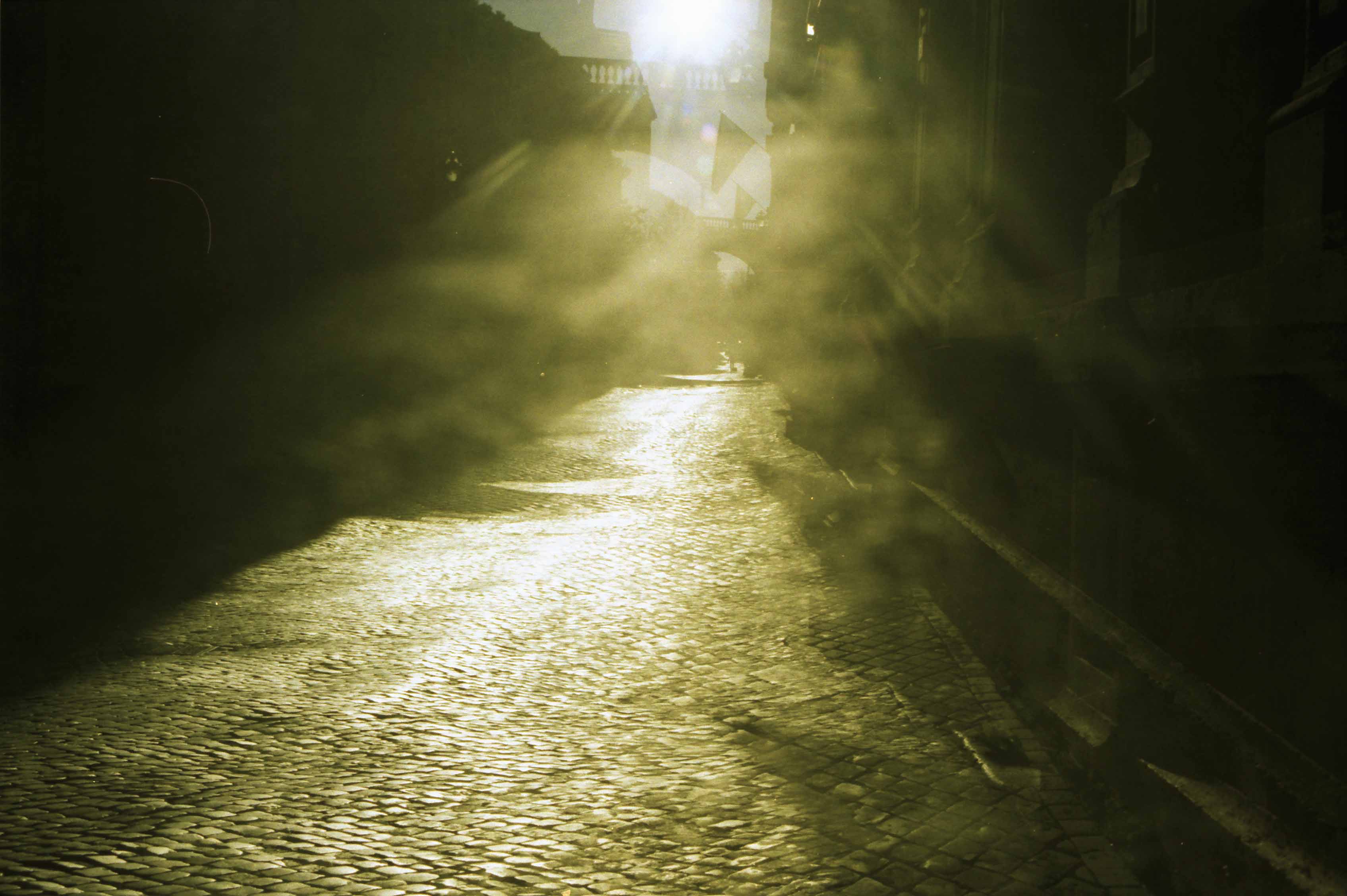
 RSS Feed
RSS Feed
